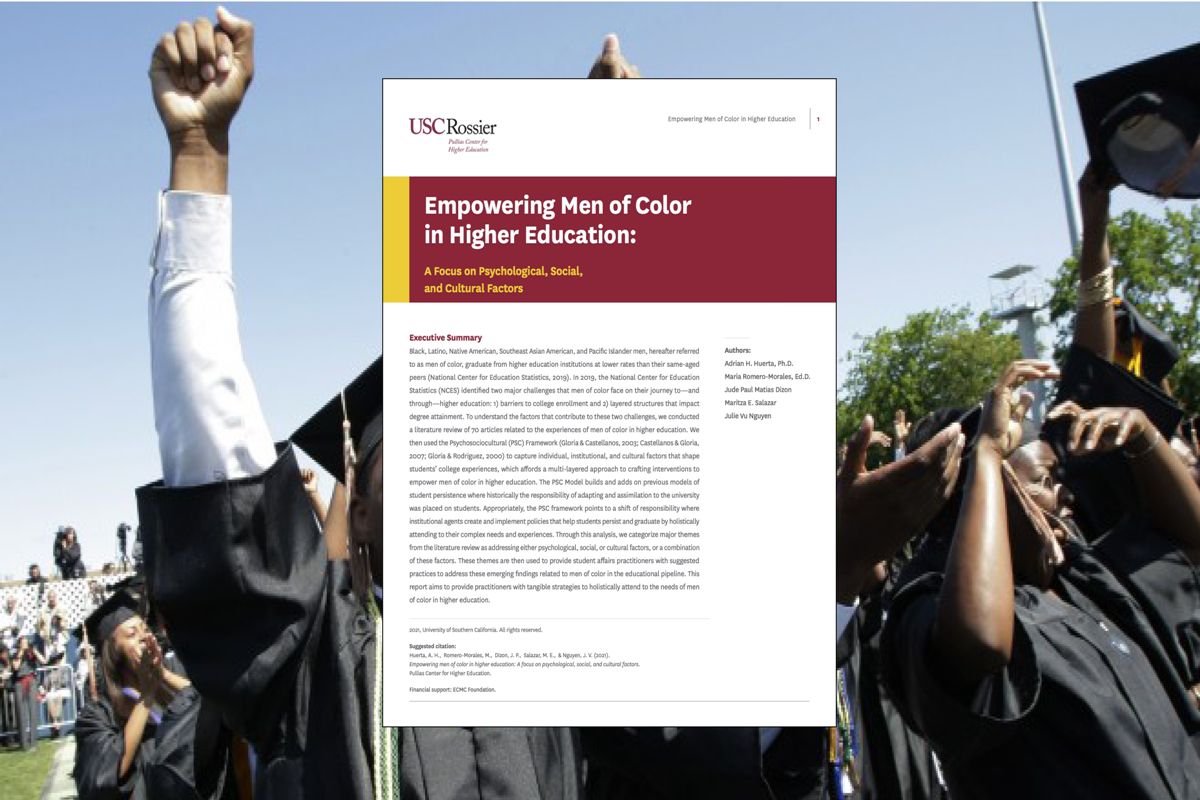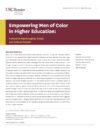
New Paper Examines Individual, Institutional, and Cultural Factors that Shape Students’ College Experiences for Men of Color
Empowering Men of Color in Higher Education: A Focus on Psychological, Social, and Cultural Factors provides examples of key findings related to psychological, social, and cultural factors contributing to enrollment and degree attainment issues for men of color in higher education. The paper encourages practitioners to pause and further recognize internal beliefs around men of color, as well as how to best develop programming structures to support their success. The report aims to provide practitioners with tangible strategies to holistically attend to the needs of men of color in higher education.
“We categorize major themes from the literature review as addressing either psychological, social, or cultural factors, or a combination of these factors” notes the lead author of the brief, Adrian H. Huerta, Assistant Professor of Education at USC and a Pullias Center faculty member., “these themes are then used to provide student affairs practitioners with suggested practices to address these emerging findings related to men of color in the educational pipeline.”
The researchers conducted a literature review of 70 articles related to the experiences of men of color in higher education to capture individual, institutional, and cultural factors that shape students’ college experiences, which affords a multi-layered approach to crafting interventions to empower men of color in higher education.
The researchers share additional implications for how higher education practitioners can further develop programming that is intentional and holistic in an effort to address the complex needs of men of color, as well as highlight unhealthy exclusionary practices and brainstorm remedies to combat white supremacy embedded in different systems and structures.
“The intersection of race and gender raises issues that must be addressed to bring forth the untapped potential of men of color that is often overlooked due to negative media portrayals and stereotypes that may be reinforced by authority figures” explains Huerta.
A team of Pullias Center researchers consisting of Adrian H. Huerta, Maria Romero-Morales, Jude Paul Matias Dizon, Maritza E. Salazar, and Julie Vu Nguyen authored and contributed to the report. For more information and research on Men of Color in Higher Education visit the Men of Color page on the Pullias Center website.

Empowering Men of Color in Higher Education: A Focus on Psychological, Social, and Cultural Factors
Adrian H. Huerta, Maria Romero-Morales, Jude Paul Matias Dizon, Maritza E. Salazar, Julie Vu Nguyen
Pullias Center for Higher Education (2021)
Men of Color
Download 446.17 KB 13590 Downloads